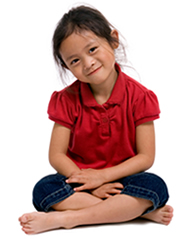 During the next year, children continue to expand their language skills and practices using their minds and experiencing life. Perception still overcomes logic and reality. Learning new things takes six weeks of repetition. Processing, intention, proceeding and checking are becoming more proficient. Eventually children become less distractible and demonstrate a great need for mental stretching.
During the next year, children continue to expand their language skills and practices using their minds and experiencing life. Perception still overcomes logic and reality. Learning new things takes six weeks of repetition. Processing, intention, proceeding and checking are becoming more proficient. Eventually children become less distractible and demonstrate a great need for mental stretching.
As he/she approaches the end of the first plane, the child may have developed more fixed concepts. Thinking and learning are often more verbal and mental, although they must still begin in concrete experiences and repetition. Children of this age are generally more logical, refining in their classifications, and are less emotional.
Social
Sometime during their fifth year, children begin moving toward a structured quest for experience and knowledge. They are usually more capable of seeing the needs of others and are moving from “I am what I imagine” to “l am what I learn.” Abruptly, children may experience a change midway through this year, once again becoming self-interested, pessimistic, easily frustrated, inflexible and negative toward new situations.
By the end of this first plane of development, children are exhibiting an awareness of others while remaining as calm, assured, confident individuals.



